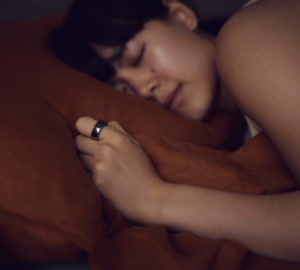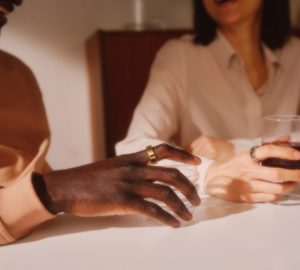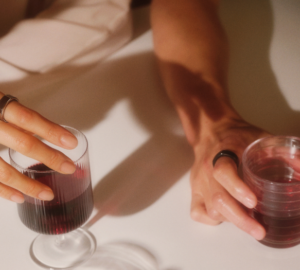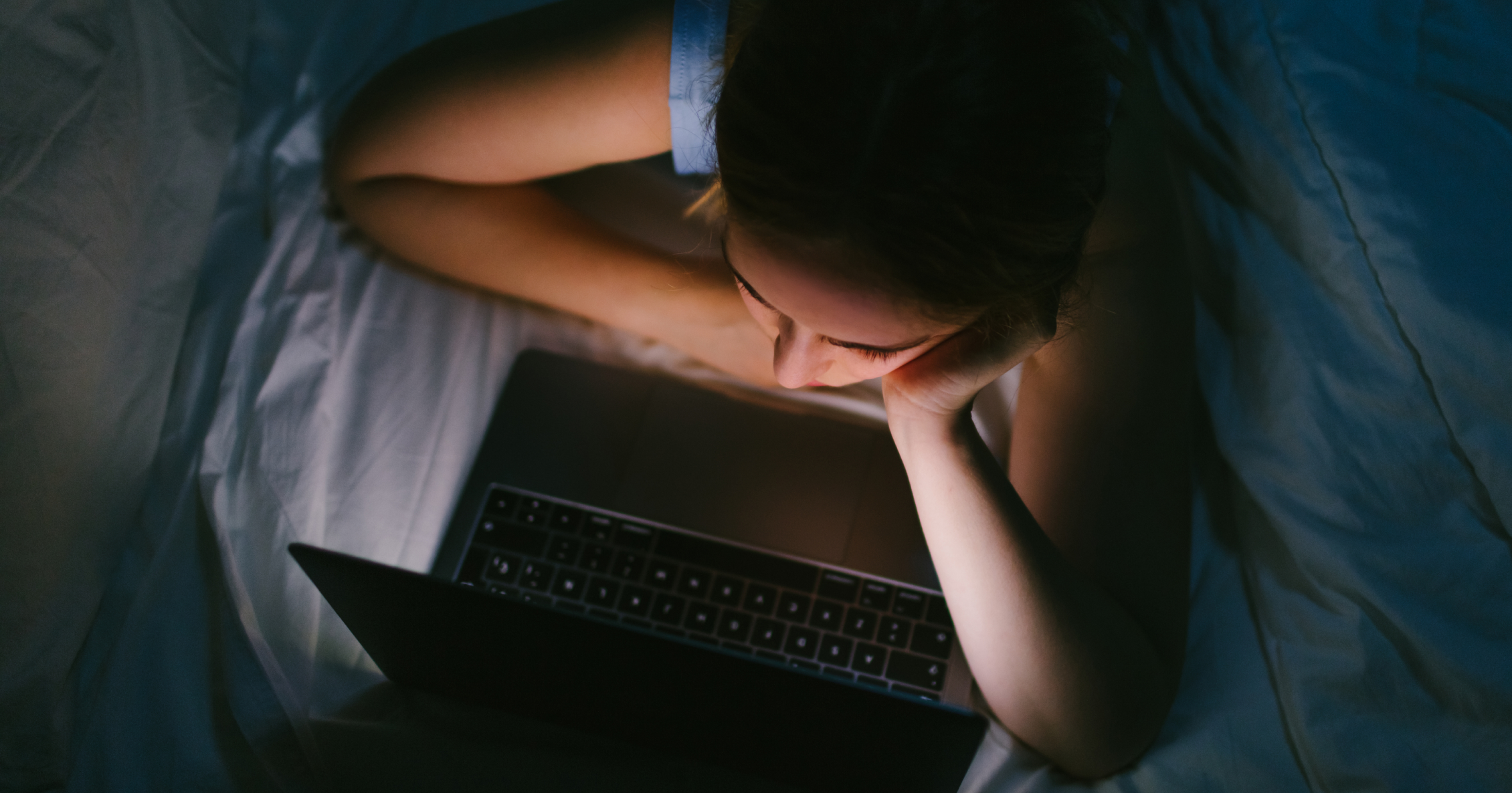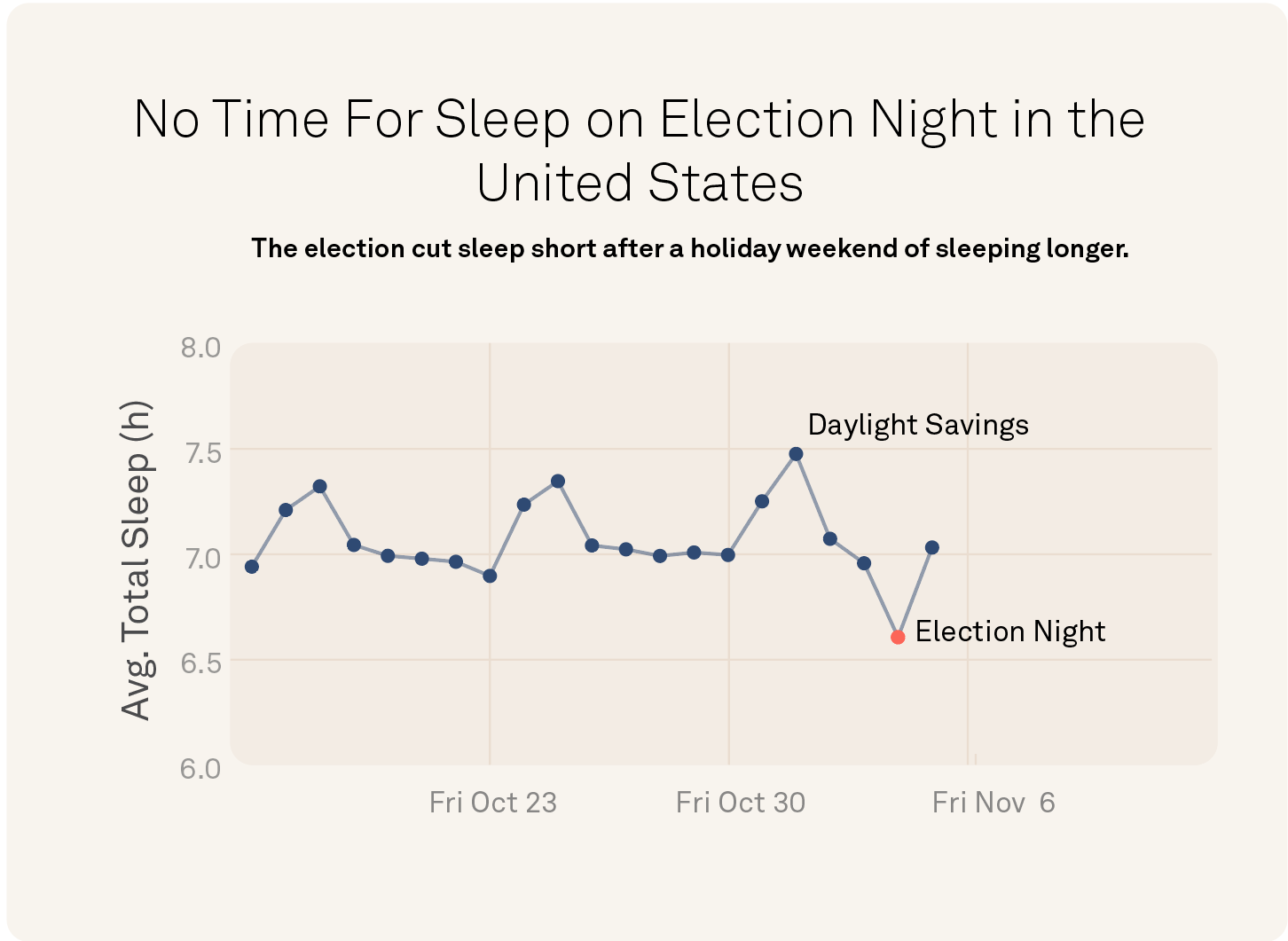Too stressed to sleep? We’ve all had those nights— tossing and turning over a deadline, replaying an emotional event, or adding items to our endless to-do list. In the past, these nights might have been fewer and further between, but 2020 hasn’t been like other years.
As if a global pandemic isn’t enough, there’s a contentious election looming, keeping us awake late at night asking ourselves… Is it just me, or is everyone feeling this way?
While we’ve all been focused on anticipating outcomes…Oura has been thinking about how Americans are doing, specifically, how they are sleeping.
Now, with Oura data, we can get answers to the question: How are people in the US sleeping during the 2020 election?
Peoples’ ability to accurately track their sleep at home with wearables like Oura has changed the landscape of sleep research— for both Oura users and scientists. With millions of nights of data logged each week, incredible patterns start to reveal themselves.
Oura’s CEO, Harpreet Singh Rai, shares the impact of exploring sleep: “When you understand your sleep, you understand your physical health, mental health, and your life. What gets measured, gets mastered and you can see how certain behaviors impact your personal well-being. Taking a step back and looking at population level data allows us to explore new insights around cultural moments, to make discoveries we may not have seen before.”
In search of answers, we looked for patterns in an aggregated and anonymized dataset from tens of thousands of users from across the United States.
What Happened On Election Night?
- As a nation, we lost 138,833,045 hours of sleep.
- Our hearts were racing, and our average resting heart rates shot up 1.4 bpm—much higher than the predicted average we’d expect for a ‘normal’ Tuesday.
- The night was stressful, and we felt it. In the Oura app, there was a sharp 15% increase in the usage of the “Stress” tag and a 9% increase in “Anxiety.”
- The weekend before the election marked the end of daylight savings time, and we were given an extra hour of much needed, and deserved, sleep—but that was short lived. Even with that extra hour, the nation’s Sleep Scores plummeted on election night to 76 (out of 100).
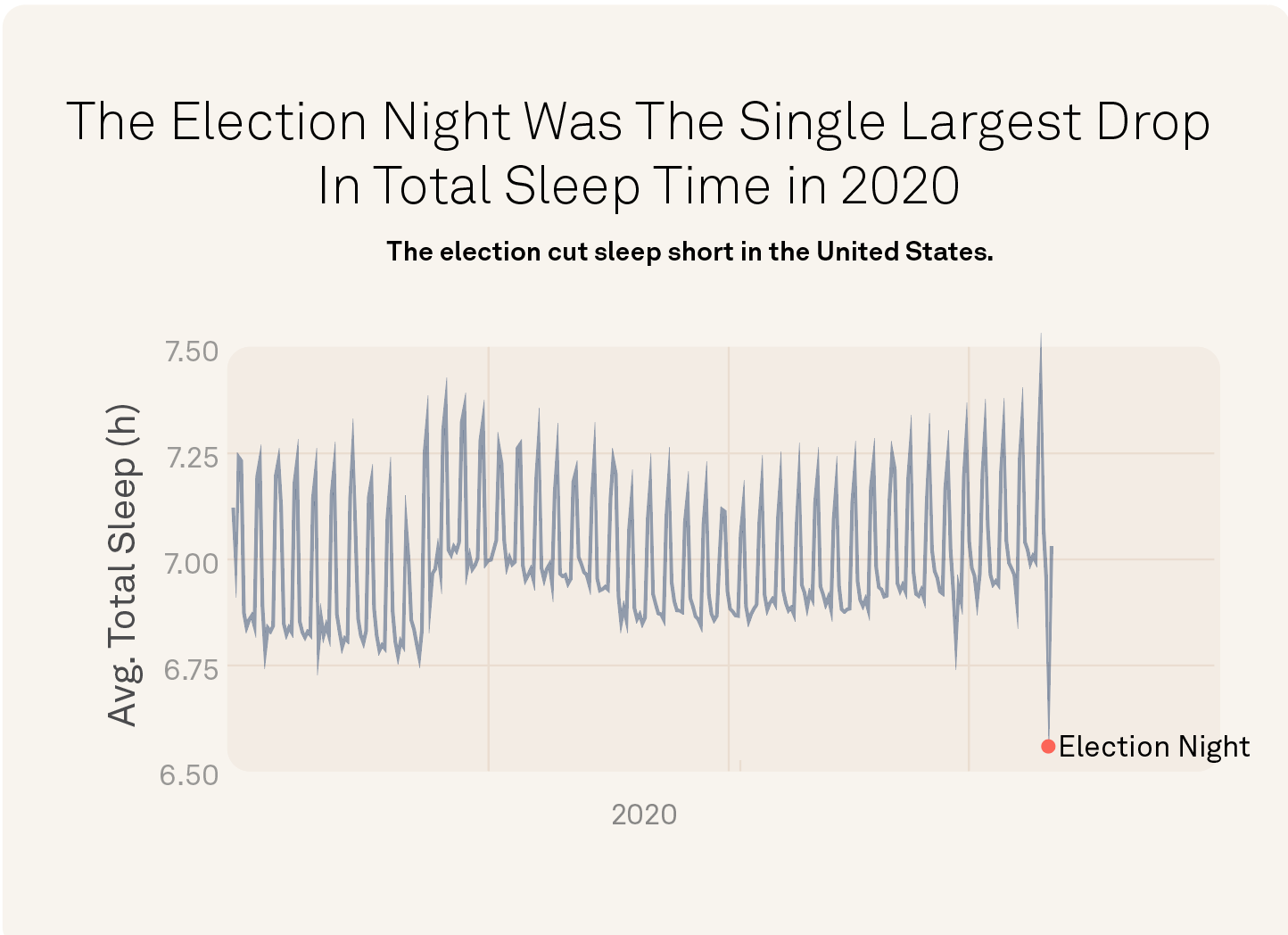
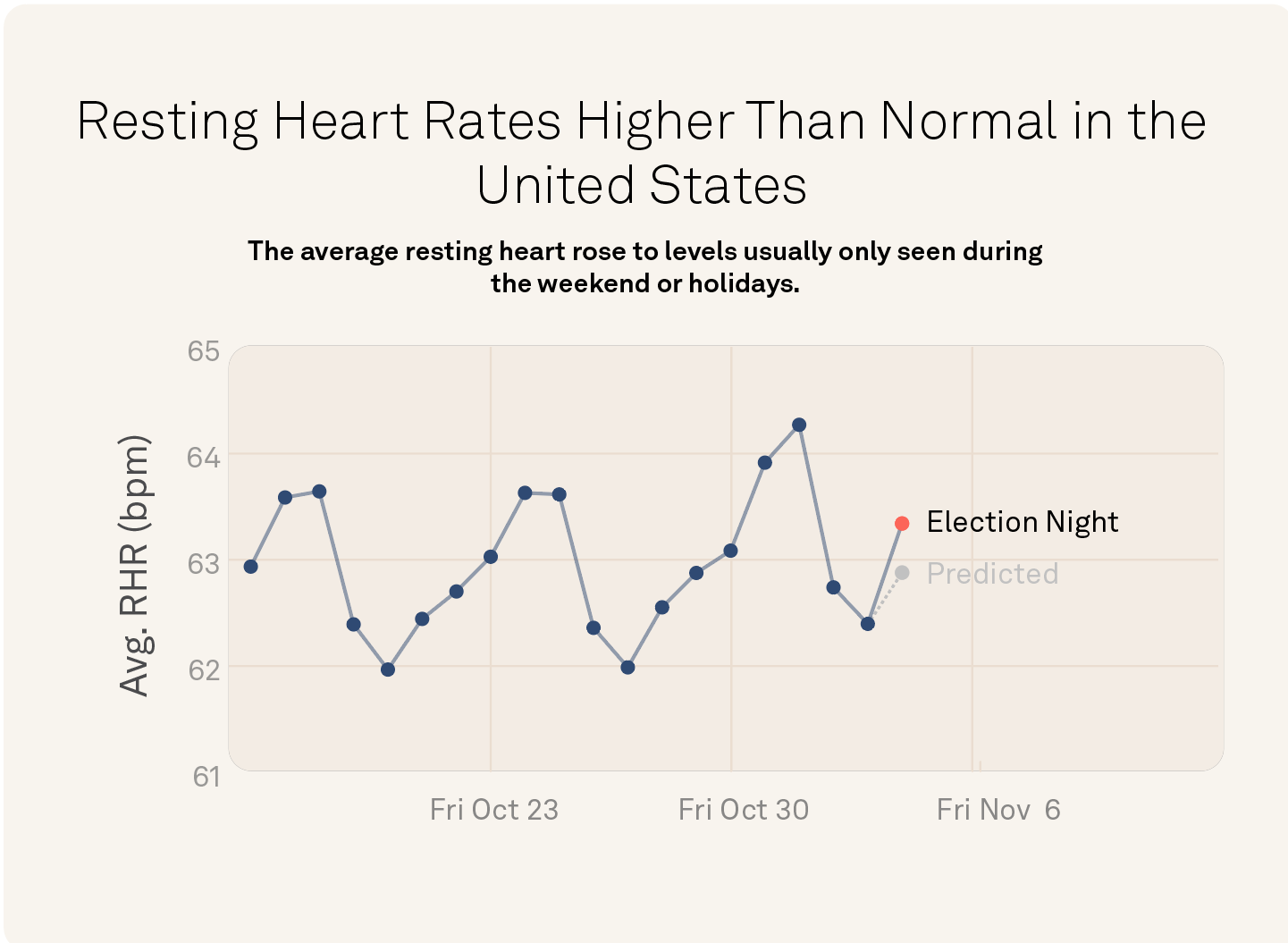
What Happened Wednesday Night After The Election?
- We bounced back. Our heads hit the pillows, we got some much deserved sleep, and our total sleep time normalized.
- Those full nights of sleep worked, and our Sleep Scores rebounded from 76 to 79.
- Our hearts finally had some time to relax, and our resting heart rates came back down just a bit.
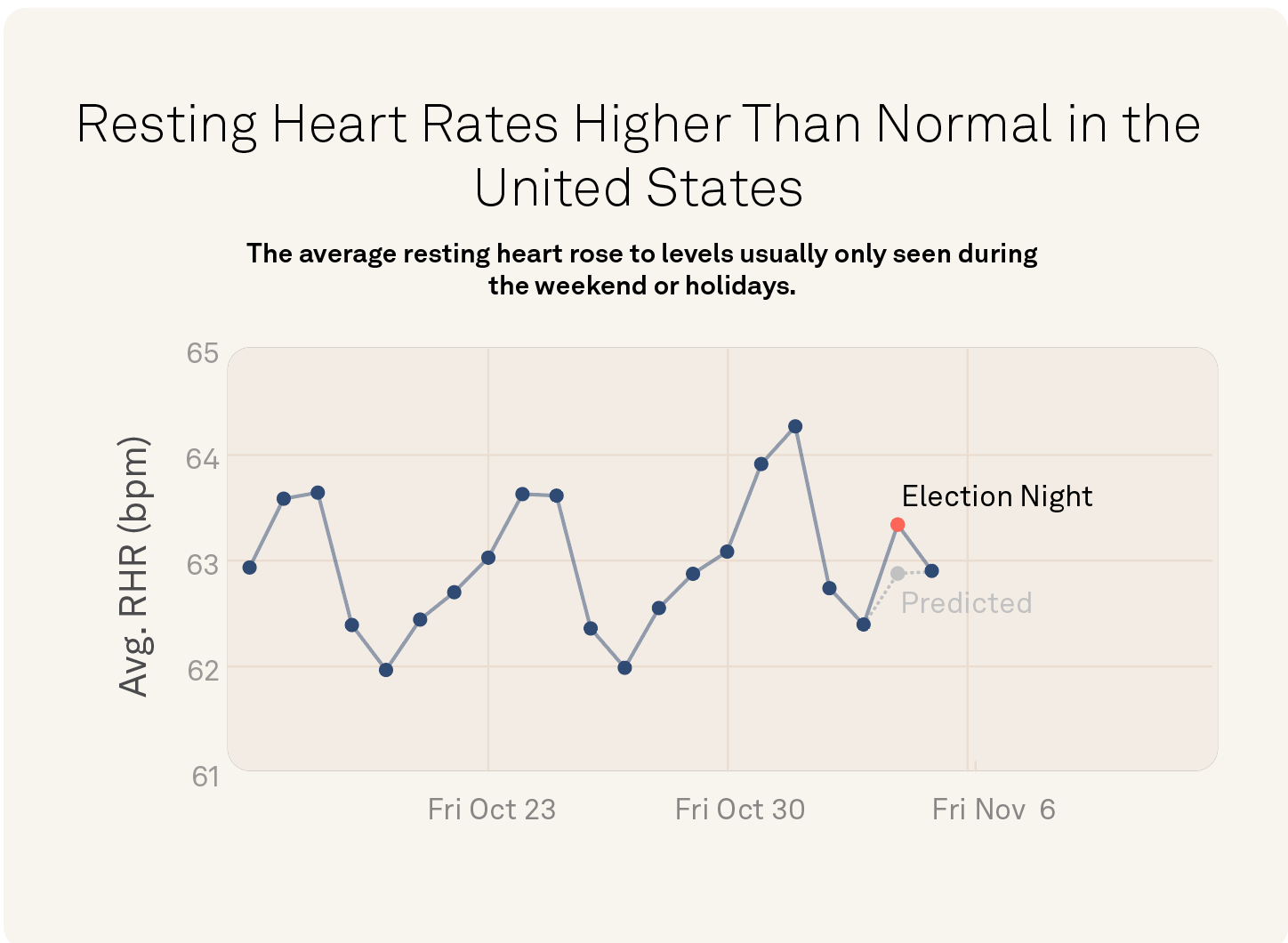
So, What Happens Next?
The data doesn’t lie. We could all use better sleep this week, but the good news is things are already looking better.
But just because tossing and turning may have worked their ways into our nighttime routines, that doesn’t mean it has to stay this way. Data like this doesn’t just help us see how our lifestyles and current reality impact our sleep, it also empowers us to take steps towards improving it.
So let’s keep it up! Whether it’s disabling a few of our notifications, starting our days with a walk rather than a sprint through our news feeds, or just incorporating some wind-down time into our night-time ritual, we have the power to prioritize sleep and the resources to continue sharing what we learn along our journeys.
Oura will continue to search for and share any patterns that we discover in an effort to bring positive change to our sleep and overall health.
Sleep is the primary source of mental and physical health, so it’s time for us to start prioritizing our recovery and rest because better days start with better sleep, and better sleep leads to a better us.
Note: Oura data is processed and handled in a de-identified, aggregate form which prevents us from identifying users, unless express consent is given.








